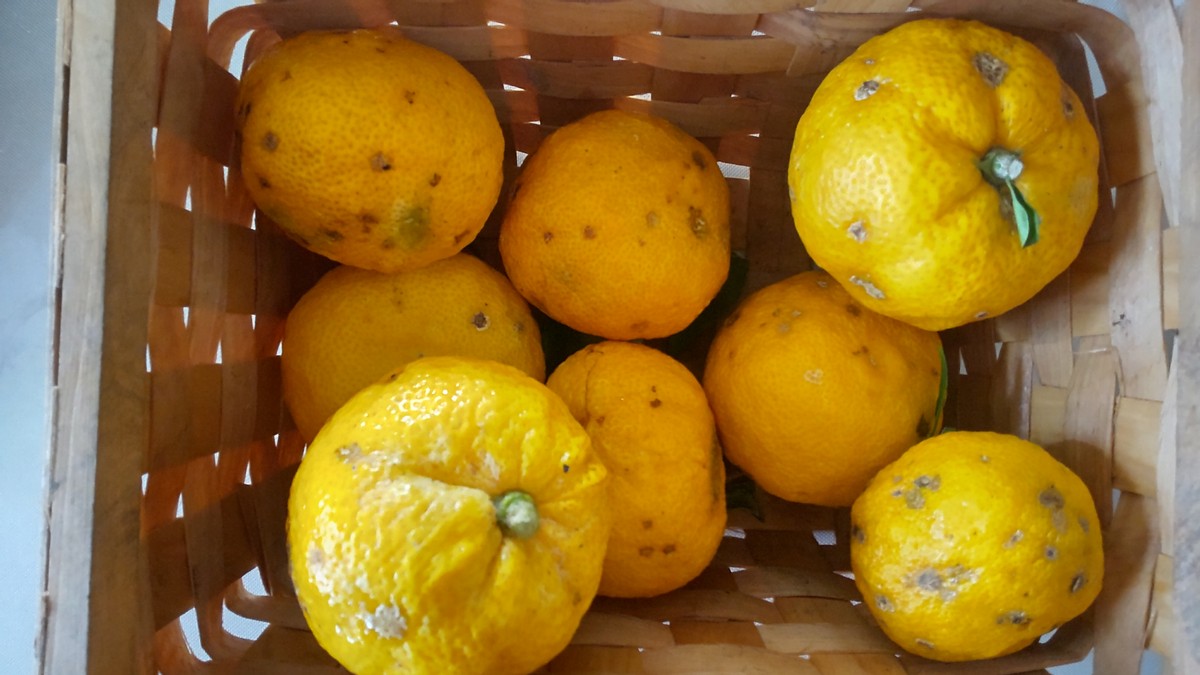
Today is the winter solstice, the shortest day of the year in the Northern Hemisphere. It's called touji (冬至 とうじ) in Japanese.
On this day, we have several traditions such as eating pumpkins, red bean dishes or taking a bath with yuzu (Japanese citrus fruit).
Each tradition has its own meaning, but today I’d like to focus on the yuzu bath. The picture below shows yuzu, a fruit with a wonderfully distinctive aroma that I love. We use the fruit for cooking or baking too. I bought the organic yuzu for the winter solstice to make a yuzu bath.
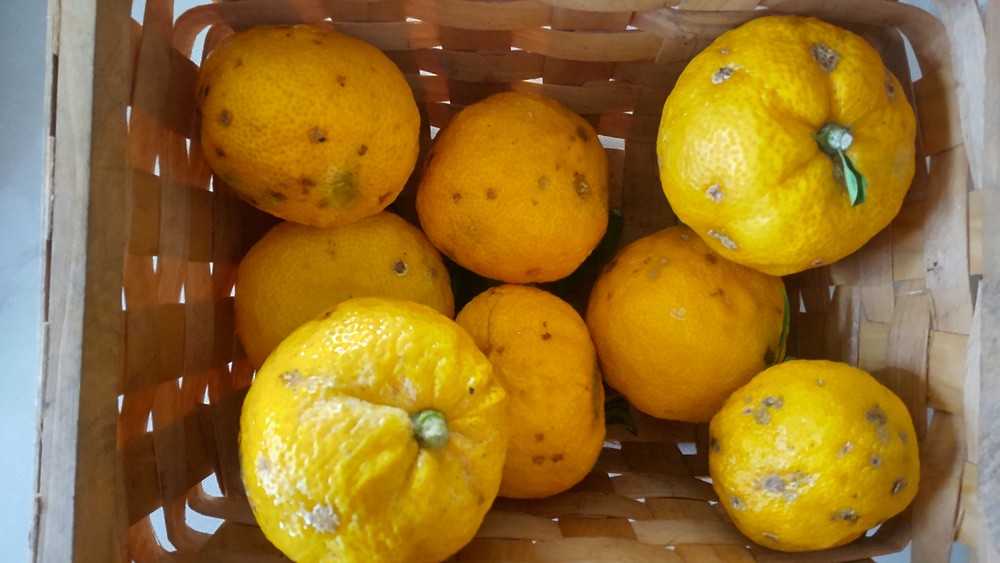
Some people leave the fruit whole, but I wanted the aroma to be stronger, so I cut the yuzu in half.
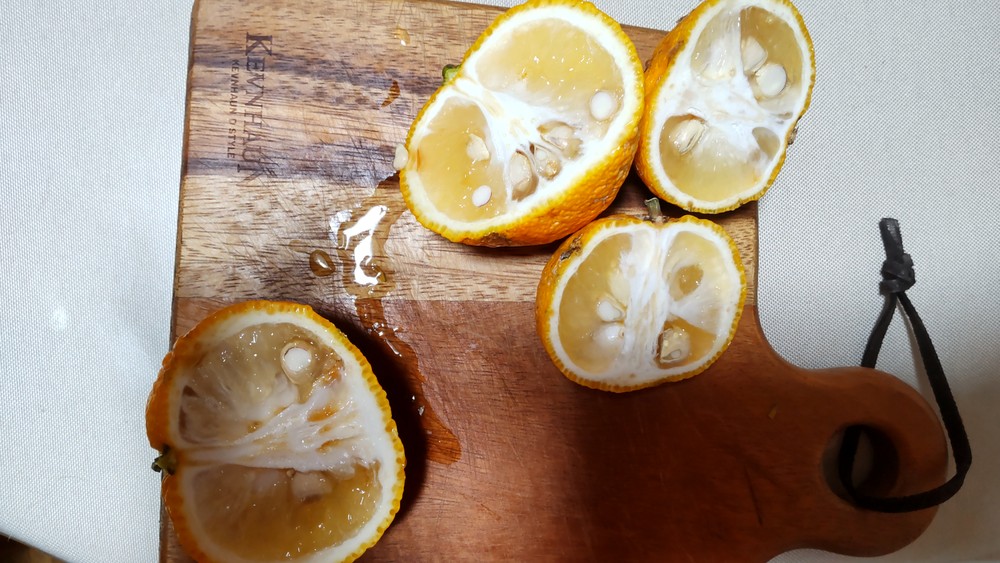
I put them into a net and let them float in the bathtub.
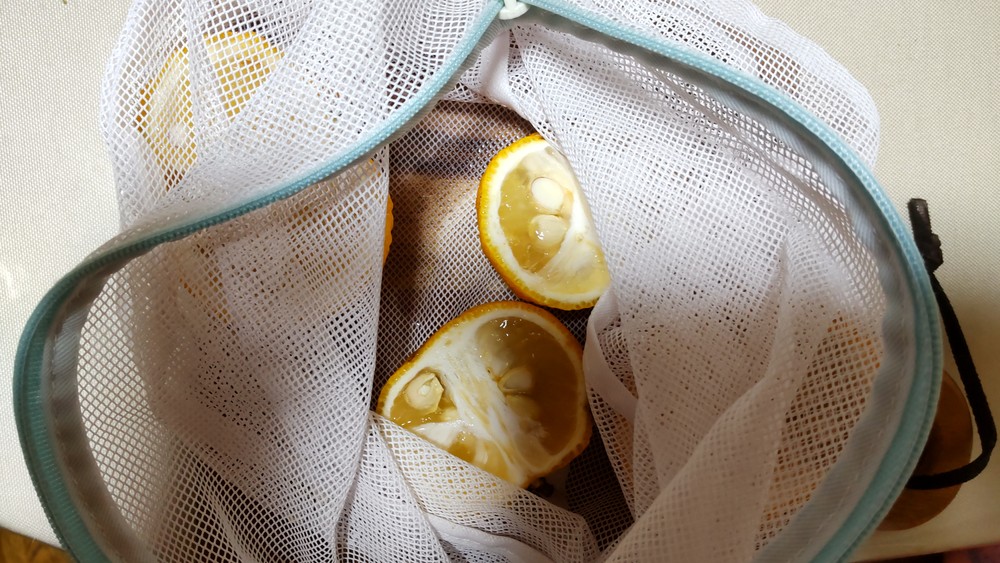
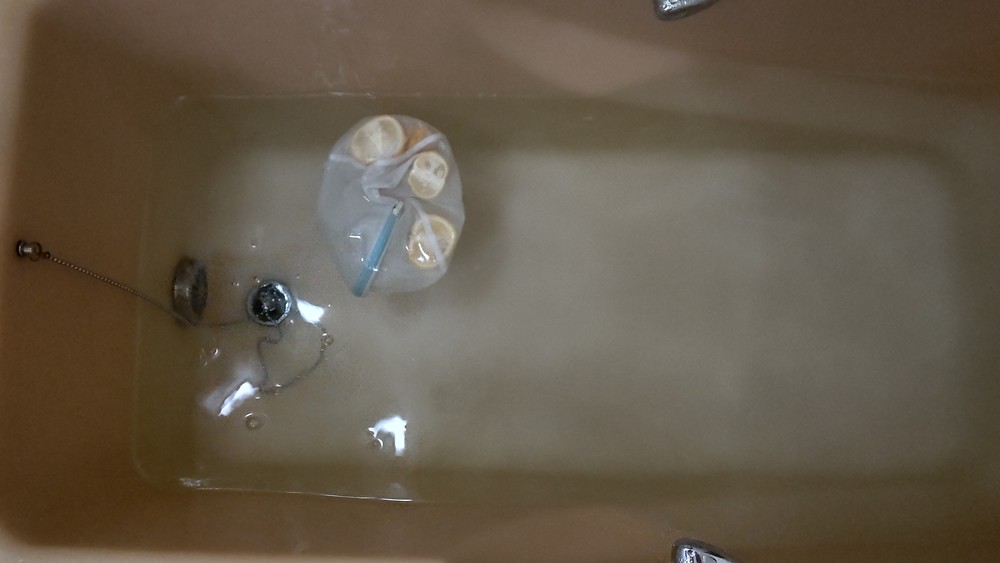
I love the yuzu bath because the scent is absolutely incredible. Taking the yuzu bath on the winter solstice has been a part of tradition in Japan since the Edo Period. We believe that taking the bath on the winter solstice makes us stronger and we can avoid catching a cold. There are other benefits too: the strong citrus aroma is deeply relaxing, and yuzu is rich in vitamins, especially vitamin C, and citric acid. These are great for the skins and help us recover from tiredness quickly.
I have a three-year-old yuzu tree in my yard. However, it hasn't bloomed yet. I truly hope next year it'll start flowering.
(4741)
We celebrated it last night, the longest night of the year. It's called Yalda/Chelle.🍷🍉
Thank you for sharing! How did you celebrate the day? Do you also have some traditions?
We spend time with family or friends and eat nuts and red fruits/vegetables like boiled beetroots, pomegranate and watermelon. We also read poems of the Persian poet Hafez like this: We choose a random page of the book and make a wish. Then we, usually the oldest person, read that page out loud. We did it this way. Others might read other poets and make more sweets with these items.
Wow! Thank you so much, @Zobayda for sharing your traditions. I love learning different cultures. It's always fascinating for me.
My pleasure! I didn't know it was special for the Japanese, too. So, thank YOU for sharing!
You are welcome. I'm sure not for only us but it's also special for more countries.
I enjoy reading about Japanese traditions. Many things seem to be close to nature. Thanks for sharing them with us.
In Spain, the "winter solstice" marks the beginning of winter, but the highlight in terms of celebrations and traditions is that it coincides with the "Christmas holidays". Christmas is a family celebration, where families get together to share a special dinner, which usually includes traditional dishes such as lamb, seafood, turrones and polvorones, Yumi @yumiyumayume
@SEQ77 Thank you for reading and commenting on my post as well! I'm glad you enjoyed it. The long history about these traditions still amaze me.
@druida I've heard the winter solstice is the origin of Christmas. In Japan New Year is more important and family tradition. There are lots of traditions on this day. I'll write about it some time soon. Thank you for sharing turrones and polvornes. Since I had no idea what they are, I googled these.
We don't really celebrate the winter solstice in the UK. It's a pagan holiday but there aren't many pagans. Some people go to Stone Henge to celebrate and sometimes the news will show them.
@t4up3 Thank you for reading my post. I'm curious about how people from the UK celebrate the winter solstice with Stone Henge. Do they see sunrise there?
@yumiyumayume yes, they attend the sunrise there. In the UK this is at 9:20 am.
Thank you for the info. The sunrise time is very late, isn't it? I'm a bit surprised.